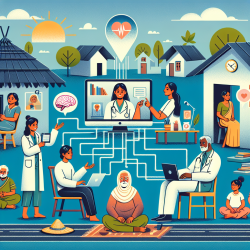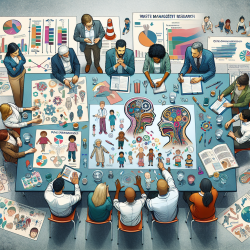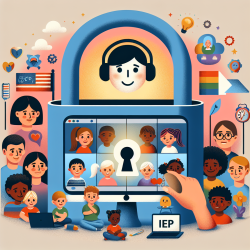As a Special Education Director, ensuring the success of our students with disabilities is a top priority. Today, we’re diving into the Alaska Department of Education and Early Development (DEED) State Systemic Improvement Evaluation Plan. This plan is designed to enhance the educational outcomes for students with disabilities across Alaska. Let’s explore the key areas and intended outcomes of this comprehensive initiative.
Priority Area: Implementation, Analysis, and Evaluation
The Alaska DEED, in collaboration with the National Technical Assistance Center on Transition (NTACT), has established the Alaska Interagency Transition Council (AITC). The AITC is a crucial component of the plan, tasked with coordinating transition activities across agencies and supporting districts and schools in implementing evidence-based practices.
- Meetings and Goals: The AITC meets regularly to set and evaluate goals, ensuring they are effective in improving graduation rates and post-school outcomes for students with disabilities.
- Training and Support: The council provides specific transition training and support to districts and schools, focusing on evidence-based practices.
- Collaboration: The AITC increases collaboration between agencies, especially those focusing on Alaska Native students, to co-develop resources and co-sponsor events.
School Capacity
Building the capacity of schools is another critical focus. The plan includes distributing a regular secondary transition newsletter and providing virtual training for teachers and administrators on evidence-based practices. These initiatives aim to improve graduation rates and transition planning for students with disabilities.
- Newsletter Distribution: Regular newsletters keep educators informed about professional development opportunities and resources.
- Virtual Training: Online training sessions offer practical examples of implementing evidence-based practices in Alaska, enhancing teachers' ability to support students with disabilities.
- Culturally Responsive Programming: Increasing the distribution of culturally responsive training materials, especially for rural districts with large populations of Alaska Native students with disabilities, is a priority.
Student Instruction and Intervention
To ensure students acquire the necessary skills for successful transitions, the plan includes several instructional and intervention programs:
- JOBZ Curriculum: This program teaches essential skills for transition and graduation, with annual evaluations by participants, parents, and teachers.
- S’Cool Store Program: Another initiative aimed at teaching transition skills, evaluated annually for effectiveness.
- ATOP Transition Camps: These camps provide valuable skills and techniques for successful transitions, with ongoing evaluations.
Community Involvement and Integration
Engaging the community is vital for the success of students with disabilities. The plan includes several initiatives to foster community involvement:
- Stone Soup Group Regional Parent Navigators: These navigators provide inclusive training for parents, improving community integration and involvement.
- Resource Fairs and Community Gatherings: Parent navigators attend these events to share information about school-related services and build relationships with schools and families.
- Local Stakeholder Groups: Community members participate in these groups, focusing on graduation and post-school outcomes.
The Alaska DEED State Systemic Improvement Evaluation Plan is a robust initiative aimed at improving the educational outcomes for students with disabilities. By focusing on implementation, school capacity, student instruction, and community involvement, the plan sets a clear path for success.
For more information, please follow this link.










